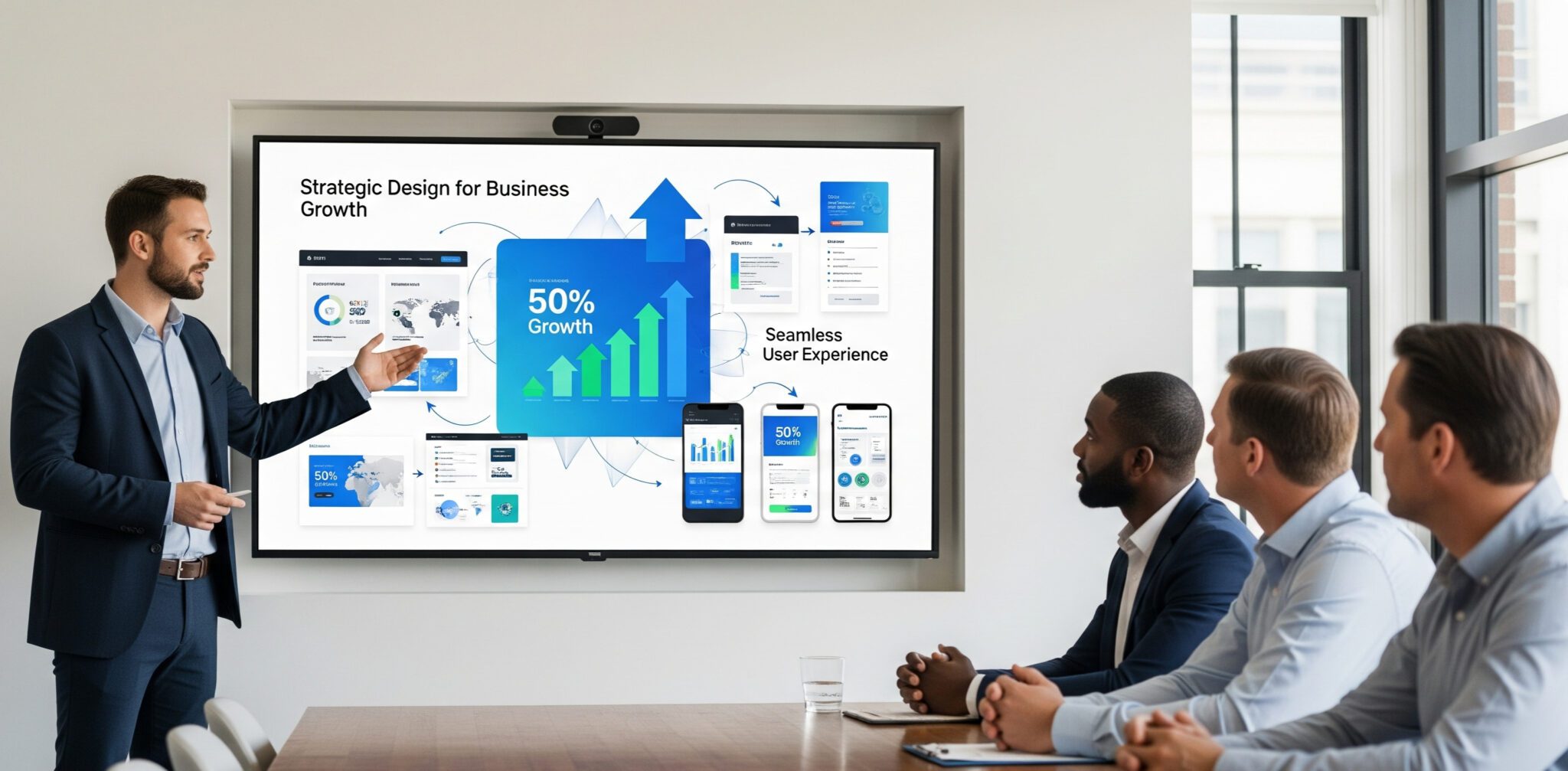Lead generation used to be about reaching as many people as possible and hoping a few would bite. But those days are fading fast. Now, it’s all about being smart, finding the right people, connecting with them personally, and doing it efficiently. That’s where Artificial Intelligence (AI) comes in. In 2025, AI isn’t just a fancy buzzword; it’s reshaping how businesses discover, engage, and win over potential customers.
We’ll dive into how AI is changing the lead generation game, the tech behind it, and practical ways you can tap into this powerful shift to grow your business smarter, not harder.
The Traditional Lead Generation Model: Why Change Was Needed
For decades, lead generation relied on broad outreach methods cold calling, mass email campaigns, and manual data analysis. These techniques were often time-consuming, costly, and produced inconsistent results. Marketers struggled with:
- Poor lead quality
- Low conversion rates
- Inefficient use of resources
- Difficulty in personalizing messaging at scale
Despite advances in digital marketing, these pain points persisted, prompting the search for smarter solutions. AI entered the scene as a game-changer, enabling marketers to automate, optimize, and scale lead generation efforts with unprecedented precision.
What Does AI-Powered Lead Generation Look Like in 2025?
AI lead generation combines machine learning, natural language processing, predictive analytics, and automation to:
- Identify the right prospects with unprecedented accuracy
- Score and prioritize leads based on behavior, intent, and fit
- Personalize outreach to create relevant, timely connections
- Automate repetitive tasks to free up sales and marketing teams
These capabilities not only improve efficiency but also enhance the customer experience, fostering trust and increasing conversion rates.

1. Intelligent Prospect Identification: The Power of Big Data and AI
AI’s ability to process and analyze massive volumes of data from social media activity and website interactions to purchase history and CRM records means businesses can now uncover hidden patterns and signals that identify the most promising leads.
Case in Point: A SaaS company uses AI to scan thousands of LinkedIn profiles daily, filtering prospects by industry, company size, recent funding rounds, and digital behavior. This approach drastically reduces time spent on prospecting while increasing lead relevance.
2. Predictive Lead Scoring: Focusing on What Matters Most
Traditional lead scoring often relies on static criteria like demographics or firmographics. AI-driven predictive lead scoring, however, dynamically analyzes real-time data and historical trends to forecast a lead’s likelihood to convert.
This means sales teams can focus their energy on leads showing genuine buying intent, improving conversion rates and reducing wasted effort.
3. Hyper-Personalized Outreach: Building Genuine Connections at Scale
AI-powered personalization goes far beyond inserting a prospect’s name in an email. By leveraging data on browsing habits, past purchases, and engagement history, AI crafts tailored messages, product recommendations, and content that resonate deeply with each lead.
Example: An AI system might notice a lead repeatedly visiting a product pricing page and automatically trigger a personalized email addressing pricing questions or offering a demo, increasing the chance of conversion.
4. Conversational AI & Chatbots: Real-Time Engagement Without the Wait
AI chatbots serve as the frontline in lead capture and qualification, providing instant, 24/7 responses to prospect inquiries. Unlike simple FAQ bots, modern AI chatbots use natural language understanding to have fluid, meaningful conversations, qualify leads by asking intelligent questions, and seamlessly hand over hot prospects to sales reps.
Impact: Companies deploying conversational AI report up to a 30% increase in lead capture rates and faster sales cycles.
5. Data-Driven Insights and Continuous Optimization
AI doesn’t just generate leads, it helps marketers understand what works and what doesn’t. Through real-time analytics and A/B testing powered by machine learning, campaigns can be continually optimized, adjusting targeting, messaging, and channel mix to maximize ROI.
Why Businesses Can’t Afford to Ignore AI in Lead Generation
Incorporating AI into lead generation offers tangible benefits:
- Increased Efficiency: Automate manual tasks and reduce wasted effort on low-quality leads.
- Better Customer Experience: Deliver personalized, timely communication that builds trust.
- Higher Conversion Rates: Focus on leads with the highest potential, boosting sales outcomes.
- Cost Savings: Reduce spend on broad, untargeted campaigns that yield minimal returns.
- Scalability: Grow lead pipelines without proportionally increasing human resources.
A recent study by Gartner predicts that by the end of 2025, over 75% of B2B sales organisations will rely heavily on AI-powered lead generation tools to meet their growth targets.

Real-World Examples: AI Lead Generation Success Stories
Brew Interactive’s Approach: We combine AI tools with strategic marketing expertise to craft lead gen campaigns that deliver measurable growth. Using AI-driven predictive analytics, we helped a B2B tech client increase qualified leads by 40% within 3 months. By automating lead qualification and nurturing, the client also reduced the sales cycle by 25%.
Industry Leaders: Salesforce has integrated AI-powered Einstein Lead Scoring into its CRM, enabling customers to identify the hottest leads effortlessly. HubSpot’s AI tools offer dynamic content personalization and predictive lead scoring, helping thousands of businesses optimize their sales funnels.
Getting Started: How to Implement AI in Your Lead Generation Strategy
- Assess Your Current Process: Map out your lead generation funnel and identify pain points or inefficiencies that AI can address.
- Choose the Right AI Tools: Consider tools that integrate smoothly with your existing CRM and marketing platforms options like HubSpot, Salesforce Einstein, or standalone AI lead gen tools like Drift and Leadspace.
- Define Your Ideal Customer Profile (ICP): Use AI analytics to refine your ICP based on actual data and behaviors, not assumptions.
- Train Your Team: Ensure your sales and marketing teams understand AI insights and workflows so they can make data-driven decisions.
- Start Small and Scale: Begin with pilot projects such as AI-driven lead scoring or chatbots in one product line or campaign before rolling out broadly.
- Continuously Monitor and Optimize: Use AI-generated analytics dashboards and reports to tweak your campaigns for ever-improving performance.
The Ethical Side of AI Lead Generation
With great power comes great responsibility. As AI automates customer interactions and analyzes personal data, it’s essential to maintain transparency and respect privacy.
- Be Transparent: Inform prospects when AI tools are used in communications.
- Prioritize Data Security: Comply with GDPR, CCPA, and other regulations.
- Balance Automation with Human Touch: Use AI to augment, not replace, genuine human interactions, preserving trust and relationship quality.
Common AI Lead Generation Tools and Platforms in 2025
Choosing the right AI tools is critical to unlocking the full potential of AI-driven lead generation. Here are some of the top platforms used by businesses today:
AI-Powered CRMs
Platforms like Salesforce Einstein, HubSpot AI, and Zoho CRM integrate AI into customer relationship management, providing lead scoring, predictive analytics, and personalized outreach capabilities.
Conversational AI Platforms
Tools such as Drift, Intercom, and Ada use AI chatbots to engage website visitors, qualify leads instantly, and schedule meetings all 24/7.
Predictive Analytics Tools
Solutions like Leadspace, 6sense, and InsideSales analyze vast datasets to forecast lead quality and buying intent, enabling smarter prioritization.
Automated Outreach Platforms
Services like Mailshake and Outreach.io automate email sequences and multichannel campaigns, optimizing timing and messaging based on AI insights.
Integration and Workflow Automation
Platforms like Zapier and Make help connect AI tools seamlessly with your existing marketing stack, ensuring smooth data flow and coordinated lead management.

Challenges and Limitations of AI in Lead Generation
While AI offers tremendous benefits, it’s important to acknowledge current challenges to set realistic expectations:
Data Quality and Availability
AI’s effectiveness depends on clean, comprehensive data. Incomplete or inaccurate data can lead to flawed predictions and missed opportunities.
Implementation Complexity
Integrating AI tools requires technical expertise and careful planning to align with business processes, a potential hurdle for smaller teams.
Over-Reliance on Automation
Excessive automation can alienate prospects if communication feels robotic or impersonal. Striking a balance is key.
Ethical and Privacy Concerns
Using AI responsibly involves navigating complex regulations and maintaining customer trust through transparency.
Measuring Success: Key Metrics for AI-Driven Lead Generation
To evaluate the impact of AI on your lead generation, focus on these essential KPIs:
- Lead Quality Score: Improvement in lead qualification accuracy.
- Conversion Rate: Percentage increase in leads turning into customers.
- Sales Cycle Length: Reduction in time from lead capture to deal close.
- Engagement Rate: Higher open, click-through, and response rates in AI-personalized outreach.
- Cost per Lead (CPL): Decrease in marketing spend relative to qualified leads generated.
- Customer Lifetime Value (CLV): Growth in the average revenue per acquired customer.
Tracking these metrics over time ensures your AI initiatives drive tangible business value.

Looking Ahead: The Future of AI and Lead Generation
As AI technology evolves, we can expect even more innovative developments:
- Voice and Visual Recognition: AI systems will analyse customer tone, voice, and images to deliver deeper insights.
- Internet of Things (IoT) Integration: AI will use data from connected devices to tailor marketing and sales outreach.
- Sentiment Analysis: Real-time emotional intelligence will help marketers adapt messaging instantly.
- Fully Autonomous Lead Generation: AI could nurture leads from first touch to closed deal with minimal human involvement.
Embrace the AI Revolution in Lead Generation
AI isn’t some distant future, it’s transforming lead generation today. It empowers businesses to connect with the right customers smarter, faster, and more personally than ever before. In 2025, adopting AI-driven lead generation isn’t just a nice-to-have; it’s essential for staying ahead in a fiercely competitive market.
Ready to take your lead generation to the next level? Brew Interactive blends cutting-edge AI technology with strategic marketing expertise to deliver scalable growth solutions tailored to your unique business needs. Contact us today and start your AI-powered journey.
